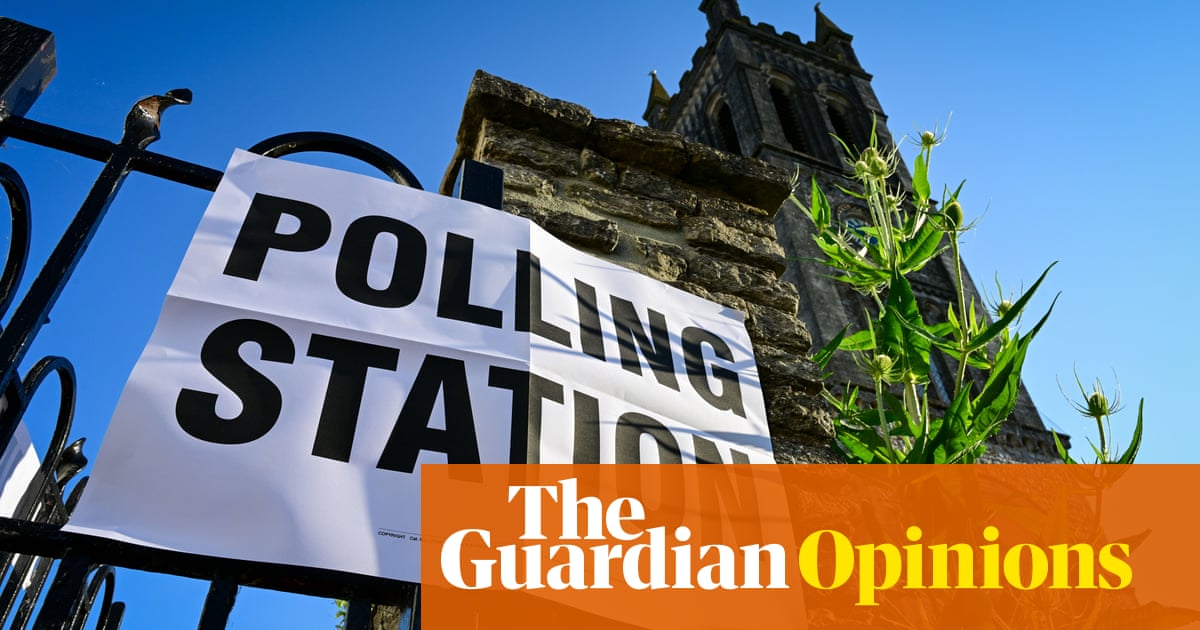
In a democracy, who is allowed to vote – and why – are basic but always interesting questions. Especially in a democracy as old and bodged-about as Britain, with its centuries of alterations to the electorate and yet its tendency to see each new set of arrangements as somehow natural, eternal and wise.
Beneath the self-congratulation and claims of political neutrality, however, the shape of the electorate is always the product of power struggles, which are no less intense for often being hidden from sight. How adult, or how British, you need to be to have a say in how the country is governed: these are contested issues in an ever more fluid world.
They are made more contentious still by political parties. For self-interested and philosophical reasons, Labour and the Tories have long had different ideas about who should be included in the electorate and who should be left out. For more than half a century, governments of both parties have redrawn its boundaries, sometimes to their considerable advantage.
Keir Starmer’s recent suggestion that 16- and 17-year-olds should be given the vote in England and Northern Ireland (they already have it in Scotland and Wales for local and devolved elections) and that EU citizens living in the UK be allowed to vote in general elections (rather than only in local ones), provoked a tellingly furious response from the Conservatives and their press allies. Labour was accused of seeking to “rig the voting system”, and of “a plot to reverse Brexit”.
In some ways, the outrage was unjustified. Reversing Brexit is not likely to be Labour policy any time soon, and accusing the party of trying to rig elections seems rich coming from a government that has just introduced a voter ID law for precisely that reason, as the increasingly loose-tongued former minister Jacob Rees-Mogg admitted last week. Faced with multiplying enemies, the Tories’ unsubtle plan seems to be to give their narrow support more weight by making it harder for others to vote.
Yet Starmer’s Tory critics were right about the potential importance of his proposals. His plan would add about 6.5 million people to the electorate, increasing it by 14%. And most of those new voters would probably not be Tories, given that Labour beat the Conservatives by 43 percentage points among 18- to 24-year-olds at the last election; and given how badly the government has treated Britain’s EU residents since Brexit. If Labour takes power and expands the electorate, comfortable Tory general election victories could become extremely rare. Even under the current system, they have had only one since 1987.
Contemplating such large-scale shifts feels unfamiliar, even like a form of wishful thinking, because since at least the 90s, so much of our politics has been about the opposite: the targeting of small numbers of swing voters. Our first past the post system, the emphasis on marginal seats, and the ever greater precision of political research and marketing, all mean that winning elections is about gaining lots of small advantages – or so we are told by an industry of strategists, pollsters and focus group analysts.
Yet Britain also has a largely forgotten history of less reactive, more ambitious approaches to the electorate. It arguably began in 1969, when the Labour government of Harold Wilson – in whose strong election-winning record Starmer takes a keen interest – reduced the voting age from 21 to 18. Cabinet supporters of the change argued that older teenagers were effectively adults; and also that giving them the vote “will channel their political energies into regular forms of political activity and away from the kind of violent demonstration in which students have recently been indulging” – the famous 1968 uprisings. Today’s 16- and 17 year-olds are not rioting yet, despite having almost their entire lives blighted by Tory austerity; but giving them the vote might make that less likely.
Labour almost certainly gained from lowering the voting age. They won two of the next three elections. In October 1974, the first contest for which age-related voting data is available, almost twice as many 18- to 24-year-olds chose them as the Tories: a crucial factor in a narrow victory. Yet after the Conservatives returned to office in 1979, they initiated their own politically advantageous expansion of the electorate: giving expats the vote for the first time.
Treating people living abroad as legitimate participants in domestic politics suggested that the Tories were not yet ready to give up on the old imperial idea that Britain was a global nation. It also reflected a common assumption that expats were rightwing: people who had left the country to make more money, pay lower taxes and escape postwar Britain’s supposedly stifling egalitarianism. Letting them register as “overseas voters” in the British constituencies where they had last lived was attacked by Labour as “international gerrymandering”. But the Tories ignored the accusation, and then extended how long expats could retain a vote in Britain from five to 20 years. At the 1992 election, the first after this change, it was estimated that about two-thirds of them backed the Conservatives.
Nowadays, thanks largely to Brexit, expats are less likely to be Tories. Yet the questionable nature of letting people have a say over how Britain is governed without feeling some or any of the consequences remains. And so does the Conservative desire to harvest expat votes. Last year, the same Elections Act that introduced ID requirements for British residents who want to choose the rulers and policies that directly affect them included a less-noticed provision for expats to remotely enjoy “votes for life” in Britain. The government estimates that 3.5 million people could join the electorate. The legislation is expected to take effect in time for the next election.
If Labour wins anyway, it is not guaranteed that the party will also widen the electorate. Since making his controversial suggestion about doing so Starmer has, typically, hedged his bets, saying that Labour has “no settled policy”.
In Scotland and Wales, left-leaning parties have done well in elections since 16- and 17-year-olds were given the vote. The policy is supported by the SNP, the Lib Dems, the Greens and Plaid Cymru. Teenagers may not always make the most mature voters, but as the support from much older Britons for Brexit and a succession of poor Tory prime ministers has shown, advancing age and political wisdom don’t necessarily go together. It’s time for Labour to make Britain a younger democracy again.
Andy Beckett is a Guardian columnist












